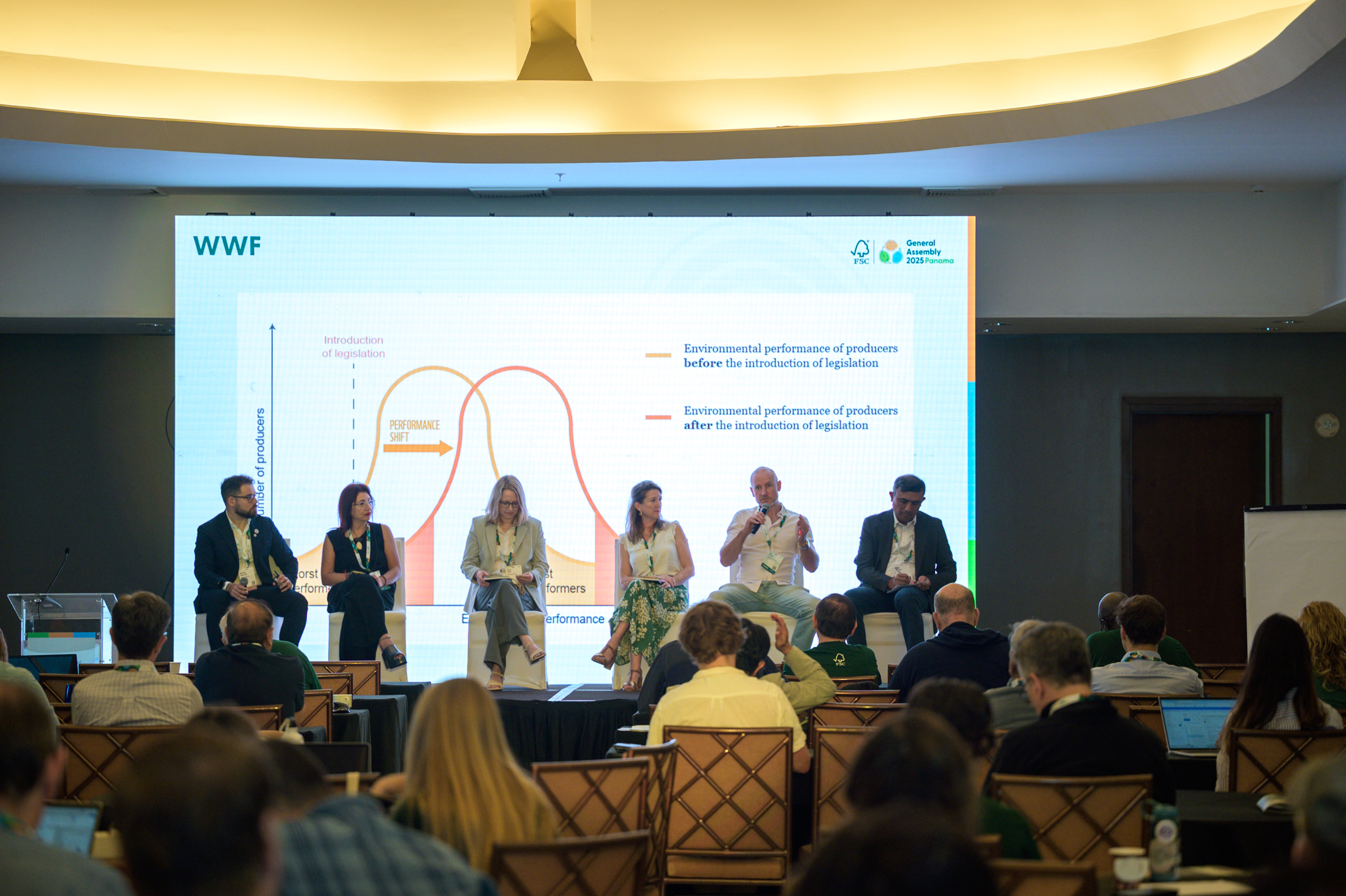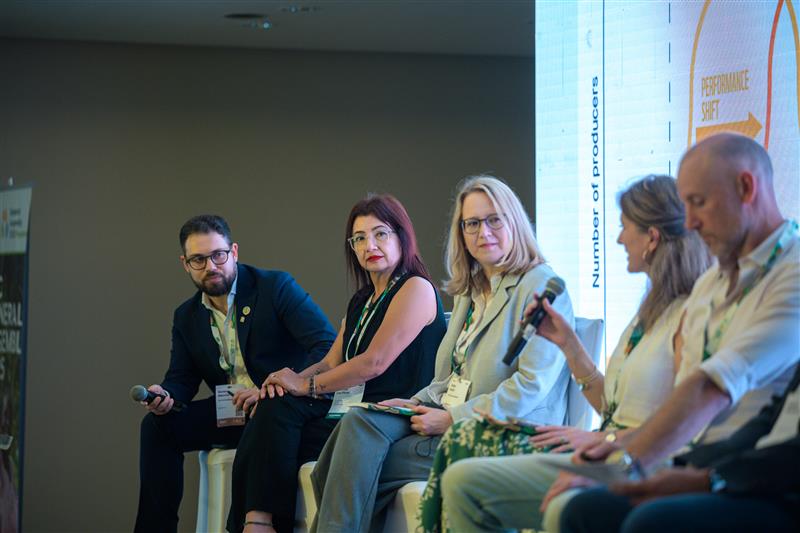
The EU Deforestation Regulation (EUDR) is a law adopted in 2023 requiring businesses to show that the products they sell or export to the EU do not originate from deforested or degraded land.
At a recent FSC General Assembly session, participants discussed what the EUDR means for businesses, producers, and certification systems such as FSC and how to align efforts moving forward.
Matteo Mascolo, Global Sustainability Policy Lead at FSC, opened with a chronological overview of the EUDR and outlined the proposed changes by the EU Commission: a six-month grace period after December 2025 for larger operators and an extended compliance deadline for small operators until December 2026.
He noted that the regulation is already having an impact even before its full implementation. “The EUDR is a catalyst for action all around the world,” he said, emphasizing that it challenged all stakeholders to question themselves and come up with new solutions. He also stressed that EUDR is a means to an end: creating a deforestation-free future worldwide.
Why does the EUDR matter?
A diverse panel discussed how different actors can support effective implementation while addressing root causes.
Tim Cronin, lead of WWF’s Forests Forward program, emphasized that there is no single solution to deforestation, and that the EUDR can help level the playing field by rewarding companies investing in sustainability. He noted that legal compliance should be seen as a starting point, with voluntary systems like FSC driving sustainability, innovation, and going beyond compliance.
Caroline Duhesme, Director of Innovation and Strategy at ATIBT, urged FSC to more confidently communicate that it is an effective tool to fight deforestation. She said that EUDR provides a unique opportunity to reshape perceptions of tropical timber, highlighting traceability and the role of strong certification in ensuring sustainable practices. “Usually tropical timber is associated with deforestation, poverty, and so on, but with EUDR we can change it,” she said.
Saija Hotti, Head of Policy Alignment at FSC, emphasized that FSC does not rely on a single tool but a suite of voluntary interoperable solutions, including risk assessments and traceability, that support compliance with EUDR and other global sustainability regulations. She highlighted that FSC is continuously evolving alongside EU legislation, embedding existing tools like FSC Trace to provide a holistic, adaptable framework.
Glenda Amarilis Lee Pinto shared that implementing EUDR is possible, as demonstrated through FSC’s work with natural rubber producers in Guatemala. Tools like FSC’s Early Adopters Programme helped companies already meet many EUDR requirements with confidence. She stressed that while challenges remain, FSC-certified companies are already more than halfway toward compliance. “This is a call for action that it is important to behave by doing forest management, and it is possible,” Glenda said.
Representing the World Trade Organization (WTO), Sajal Mathur placed the EUDR in a broader context of trade and environmental governance. “One thing that was catalyzed is this has brought all these topics into the radar of the international trade community,” he noted. He highlighted that trade rules and environmental objectives can and must work together, and that WTO members agree with EUDR intended goals as long as it does not create unnecessary trade barriers
Discussion on EUDR implementation
During the Q&A, participants highlighted practical challenges with implementing EUDR, particularly around risk assessments, consultation mechanisms, and clarity on whether FSC certification alone ensures compliance. The discussion stressed the importance of proactive communication, balancing traceability with confidentiality, and supporting producers – especially smallholders – in meeting evolving EU requirements.
Looking ahead
We know that EUDR is not the end of the story in the broader fight to end deforestation and degradation. As the session drew to a close, panelists were asked a final question: If you had a magic wand, what would you change about the EUDR?
Glenda called for more trust in low-risk countries, while Saija wished for an end to uncertainty so that stakeholders could really do the work to fight deforestation. Caroline urged the sector to move forward confidently, and Tim agreed to get on with it as we can evolve and improve as we go. Panel showed that with partnerships and shared actions a deforestation-free future is possible, already now.


